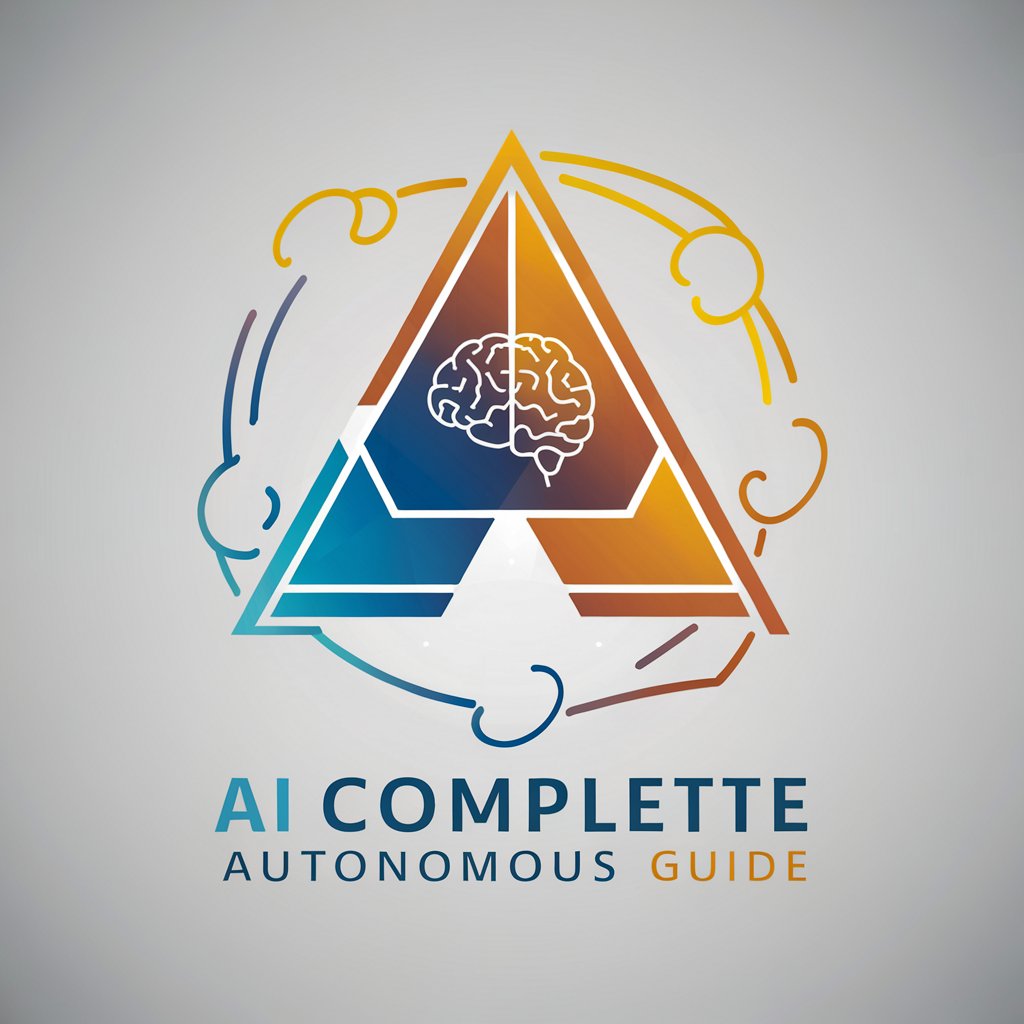
Algorithm Prof: Time Complexity - time complexity analysis tool

Hello! Ready to explore time complexity in programming?
AI-powered tool for analyzing and optimizing time complexity.
Explain the time complexity of this code.
How does time complexity affect performance?
Can you analyze the time complexity of my code?
What's an example of O(n log n) complexity?
Get Embed Code
Algorithm Prof: Time Complexity Overview
Algorithm Prof: Time Complexity is a tool designed to provide detailed, in-depth explanations of time complexity in programming. It caters primarily to learners who seek to understand how algorithms perform in terms of time and space efficiency. This tool offers comprehensive breakdowns of time complexity concepts, such as O(n), O(log n), O(n²), and more. Users can explore these ideas through a range of examples and scenarios, giving them a deeper understanding of algorithm optimization and performance analysis. For example, a learner might upload code for a sorting algorithm, and the tool would analyze the code to determine its time complexity. It would then explain why the algorithm has that specific complexity and how it could be optimized, if possible. Powered by ChatGPT-4o。

Core Functions of Algorithm Prof: Time Complexity
Time Complexity Analysis
Example
If a user uploads a file containing a sorting algorithm, the tool can analyze the code to determine its time complexity (e.g., O(n log n) for mergesort or O(n²) for bubble sort).
Scenario
A student is working on an assignment involving different sorting algorithms. They upload their code to Algorithm Prof, which provides a detailed breakdown of the time complexity and compares it to other sorting techniques. The student can then decide whether to optimize their code or better understand the inherent complexity.
Code Review and Optimization Suggestions
Example
The tool not only identifies the time complexity but also suggests potential improvements. For instance, if a user’s code has O(n²) complexity, the tool might suggest switching to a divide-and-conquer algorithm to reduce the complexity to O(n log n).
Scenario
A developer notices that their search function is slow on large datasets. By uploading the function to Algorithm Prof, they receive suggestions to switch from a linear search (O(n)) to a binary search (O(log n)) for better performance.
Theoretical Explanations of Time Complexity Concepts
Example
The tool provides thorough explanations of common time complexities like O(n), O(log n), O(n²), etc., along with real-world applications. It also covers advanced topics such as amortized time complexity and best/average/worst-case scenarios.
Scenario
A beginner programmer wants to learn more about how time complexity impacts their code. They use the tool to explore examples of algorithms, such as binary search, to understand why it is O(log n) and how that differs from O(n) algorithms.
Contextualized Examples and Code Walkthroughs
Example
For instance, if a user uploads a function with nested loops, the tool could identify that the code has O(n²) complexity due to the loop structure and provide a step-by-step walkthrough of how it came to that conclusion.
Scenario
A coding bootcamp student is learning about nested loops and how they affect performance. They upload code to Algorithm Prof and receive a detailed walkthrough explaining why their function runs in O(n²) time, helping them understand the theory in a practical context.
File Parsing and Detailed Feedback
Example
Users can upload Java, Python, or other code files, and the tool parses the contents, analyzing the time complexity of loops, recursive functions, and other constructs.
Scenario
An instructor teaching a data structures course assigns homework on different traversal algorithms. Students upload their solutions to Algorithm Prof and receive feedback about the time complexity of their tree traversal algorithms.
Target User Groups for Algorithm Prof: Time Complexity
Computer Science Students
This group benefits from the tool’s ability to analyze their code and explain time complexity in detail. Students often struggle with understanding how algorithms behave as input sizes grow, and Algorithm Prof helps them grasp these concepts through practical code examples and clear explanations.
Developers Seeking Code Optimization
Professional developers looking to improve the efficiency of their code can use this tool to analyze bottlenecks in performance. By identifying high-complexity sections of code, such as O(n²) loops, developers can optimize their algorithms for better scalability and efficiency.
Educators and Instructors
Teachers who need to explain time complexity in their programming or computer science courses can use this tool to generate examples, review student code submissions, and provide detailed feedback on time complexity. It’s a helpful resource for generating illustrative examples in class.
Self-Taught Programmers
Self-learners studying programming through online resources can use Algorithm Prof as a way to check their understanding of algorithm performance. By uploading their own code, they can see real-time feedback on how their algorithms perform and learn how to optimize their solutions.
Coding Bootcamp Attendees
Attendees of fast-paced coding bootcamps often need quick and clear explanations of complex topics like time complexity. Algorithm Prof allows them to experiment with their code and receive instant feedback on how well it performs, which is crucial for their rapid learning process.

How to Use Algorithm Prof: Time Complexity
Visit yeschat.ai for a free trial without login, also no need for ChatGPT Plus.
Start by accessing the platform through yeschat.ai, which offers a free trial without requiring any login or a ChatGPT Plus subscription.
Prepare your algorithm-related questions or files.
Ensure that you have specific algorithm-related questions ready or files containing code you wish to analyze, such as Java or Python files for time complexity evaluation.
Upload your files or enter your queries.
Use the file upload feature to submit your code files for analysis, or directly input your questions. Algorithm Prof can handle queries about time complexity, performance analysis, and code optimization.
Receive detailed explanations with examples.
Get comprehensive, step-by-step explanations related to time complexity, including theoretical and practical aspects. Algorithm Prof can break down complexities like O(N), O(N log N), and more with relevant code examples.
Explore optimization tips for your code.
Once your algorithm has been analyzed, receive suggestions for improving time complexity and optimizing performance, tailored to your specific case.
Try other advanced and practical GPTs
Remates Hipotecarios Bot
AI-powered foreclosure analysis at your fingertips.

xiǎo dān
Empower your day with AI

Cosmos Companion AI
Explore the cosmos with AI power.

Witty Scholar
Empowering Insights with AI

AI Complete Autonomous Guide
Empowering Decisions with AI-Driven Emotional Intelligence

Market Mentor
Empowering your investments with AI

Cultivating Grit Guide
Harness AI to Forge Resilience

Grit Test
Measure Grit with AI Precision

Muziek Meester
Master music theory with AI

Stoic Companion
Harness Stoic Wisdom with AI

Garden Guru
Cultivate Naturally with AI Expertise

Wise Owl
Igniting young minds with AI-powered learning

Frequently Asked Questions about Algorithm Prof: Time Complexity
What type of files can I upload for time complexity analysis?
You can upload programming files such as Java, Python, or C++ containing algorithms for analysis. Algorithm Prof examines these files and provides detailed insights into the time complexity of the functions and loops within.
Can Algorithm Prof explain specific time complexities like O(log N) or O(N^2)?
Yes, Algorithm Prof can provide in-depth explanations of various time complexities, from basic ones like O(N) to more advanced ones such as O(log N), O(N log N), and O(N^2). It also demonstrates these complexities through practical code examples.
How does Algorithm Prof help optimize my algorithms?
Algorithm Prof identifies inefficiencies in your code, pinpoints areas with high time complexity, and offers suggestions for improving algorithmic performance. It also explains how to reduce complexity from, say, O(N^2) to O(N log N) where possible.
Can I analyze the time complexity of recursive algorithms?
Yes, Algorithm Prof can analyze recursive algorithms by breaking down their time complexity, explaining recurrence relations, and providing detailed insights on how recursive calls impact performance.
Is Algorithm Prof suitable for both academic learning and professional use?
Absolutely. Algorithm Prof is designed for both academic purposes, helping students understand time complexity concepts, and professional use, assisting developers and engineers in optimizing their code for better performance.





